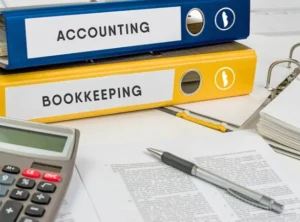When tax season rolls into summer, many Canadians feel a mix of relief and confusion. Maybe your business is catching its breath after a busy start to the year. Or maybe you’re planning a getaway and just want to get your taxes over with. Either way, it’s easy to overlook key Tax Filing Mistakes in the summer months.
But small missteps can lead to costly penalties, missed refunds, or unwanted CRA attention.
In this blog, we’ll walk through some of the most common tax filing mistakes Canadians make during summer 2025 and how you can avoid them. Whether you’re self-employed, running a small business, or filing as an individual, these tips can help you stay compliant, and keep more money in your pocket.
Why Summer Tax Filing Still Matters
Many people think of April as the only tax deadline. But depending on your situation, summer can still be a critical time for filing:
- Self-employed Canadians have until June 15 to file (though any balance owing is due by April 30).
- Corporations with non-calendar year-ends often have summer due dates.
- Late returns or adjustments from earlier years may also need attention during this period.
Despite this, a surprising number of Canadians either delay or rush their filings, leading to preventable tax filing mistakes.
1. Missing Filing Deadlines (Especially for Self-Employed Filers)
One of the most common tax filing mistakes is missing your due date altogether. Many self-employed individuals mistakenly assume they can delay payment if they file later.
But here’s the catch: even if your return isn’t due until June 15, any taxes owed are still due by April 30. Missing this can result in late payment interest.
Tip: Set reminders for both your filing and payment deadlines. CRA charges daily interest on overdue balances, even if it’s just a few days late.
2. Reporting the Wrong Income (Especially Side Gigs or Online Sales)
With the rise of the gig economy, many Canadians now earn income through freelancing, contract work, or platforms like Uber, Airbnb, or Etsy. One of the top tax filing mistakes in 2025 is forgetting to report this income.
CRA is cracking down on unreported digital income. In many cases, platforms now issue T-slips or transaction summaries.
Tip: Even if you didn’t receive a slip, you’re still responsible for reporting the income. Keep track of invoices, PayPal summaries, or any other payment records.
3. Missing Tax Credits or Deductions
Another common error is leaving money on the table. From home office expenses to medical bills, Canadians miss thousands in potential savings because they don’t claim all eligible credits.
Some often-missed deductions and credits include:
- Home office expenses (if you work from home)
- Medical expenses not covered by insurance
- Moving expenses if you relocated for work
- Tuition and education amounts (especially carried forward)
Tip: Use CRA’s My Account to check for unused credits or carryforwards from previous years.
4. GST/HST Filing Errors for Small Businesses
If you’re registered for GST/HST, one wrong entry can cause issues, especially if you claim input tax credits (ITCs) for purchases not fully business-related.
Common GST/HST mistakes include:
- Overclaiming ITCs on mixed-use items (e.g., vehicle used personally and for business)
- Using the wrong method to calculate eligible credits
- Forgetting to file altogether (even if no tax is owing)
Tip: Always separate personal and business expenses and consult an accountant if you’re unsure what qualifies.
5. Not Reporting Foreign Assets or Crypto Transactions
As of 2025, CRA continues to expand its oversight of foreign accounts and cryptocurrency activity. Canadians holding more than $100,000 in foreign assets or engaging in crypto trades must report them, even if no profit was made.
Failure to do so can result in hefty fines, even if the omission was accidental.
Tip: File Form T1135 if you own foreign assets over the threshold. For crypto, track trades, conversions, and gains year-round.
6. Rushing the Filing Process
Many people wait until the last minute and then scramble to pull everything together. Rushed returns are more likely to have missing slips, typos, and inaccurate calculations.
Even if you’re confident in your tax software, errors can creep in when you’re in a hurry.
Tip: Start gathering documents early, especially if you’re waiting on T4s, investment summaries, or business receipts.
7. Forgetting to Include All Slips or Amending Past Returns
It’s easy to miss a slip, especially if you’ve changed jobs, banks, or investment providers. CRA compares your return to slips they receive directly from employers and institutions.
If something’s missing, expect a reassessment. If you discover the error yourself later, it’s better to fix it proactively.
Tip: Always double-check your return against the CRA’s Auto-fill my return option (available in most software). If you need to correct a return, file an adjustment using your CRA account or Form T1-ADJ.
8. Not Getting Professional Advice When Needed
Sometimes it pays to ask for help. Tax rules can be complicated, especially for business owners, landlords, or those with foreign income.
Trying to DIY when your return has complexities could lead to costly oversights.
Tip: If you’re unsure, consult a CPA or tax advisor. The cost of advice is often far less than the penalties from tax filing mistakes.
Final Thoughts: How to Stay Ahead of Tax Filing Mistakes in 2025
Tax filing mistakes can be easy to make but hard to fix. In 2025, CRA has more tools than ever to detect errors, so prevention is your best defence.
Here’s how to stay ahead:
- Know your deadlines
- Keep thorough records
- Use trusted tax software or professionals
- Stay informed of changing tax rules (especially if you’re self-employed)
Tax season doesn’t need to be stressful. A little preparation and attention to detail can help you avoid common mistakes, and maybe even boost your refund.
Looking for Help with Your Taxes?
At AccTax, we help individuals and small businesses across Canada file taxes accurately and confidently. From self-employed returns to GST/HST compliance, we’re here to help you avoid tax filing mistakes and get the most out of your return.
👉 Get in touch with AccTax for professional tax support this summer.




